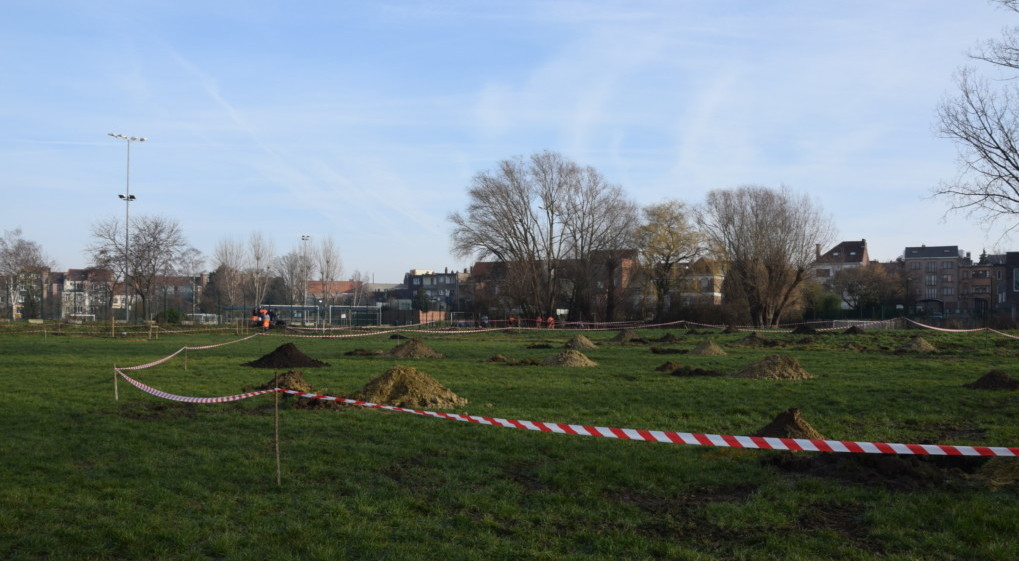From apples and figs to apricots and pomegranates, an experiment financed to the tune of €2,500 by Brussels-Capital Region is mixing fruit varieties with a view to ensuring the resilience of the region's food system.
The pilot project kicked off last week in the Brussels municipality of Forest, with the planting of the first trees in a pilot orchard in Bempt Park by the Alderman in charge of Sustainable Development, Alain Mugabo (Ecolo).
The project, under which some 50 fruit trees are being planted by the municipality in collaboration with the Centre for Urban Ecology, is aimed at researching the trees’ adaptation and resistance to global warming, Mugabo said.
Belgium’s fruits have a low level of genetic diversity
“The aim is, on the one hand, to test a variety of fruit trees and observe how they will adapt to the vagaries of the climate and, on the other hand, to study how this type of orchard can be managed in terms of maintenance, harvesting and redistribution,” Pierre Lacroix of the Centre for Urban Ecology explained.
Currently, genetic diversity is low among Belgium’s fruits. Of all the orchards in Flemish Brabant, which includes Pajottenland, the capital’s historic food basin, 95% of orchard land is devoted to just two species: apple and pear trees, of which only a limited number of varieties are grown.
“This lack of diversity is worrying both in terms of maintaining a genetic heritage and in terms of resilience and adaptation of a monoculture to the introduction of pathogens or in the face of global warming,” Mugabo noted.
The fruits are to be offered to the public
For the Forest municipality, “testing new species of fruit trees allows us to be in a research dynamic and to carry out a reflection that pushes us to take risks. Some species will work, others not. We will be able to draw lessons for the future and the fate of the tree heritage in the context of global warming,” the alderman added.
Initially, the citizens will not be involved in the project, which tests the capacity of the municipality’s active forces. Only one school will be involved in the planting of small fruit trees in a second phase. In a few years’ time, when the trees bear their first fruit, they will be offered to the public on a self-service basis.

